Your cart is currently empty!
Month: July 2024
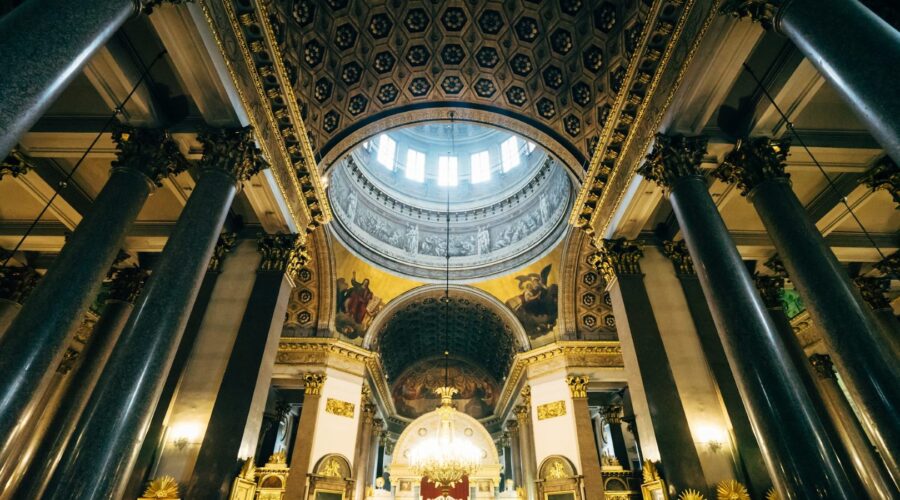
Victory Christian Center: A Comprehensive Guide
Introduction
Victory Christian Center is a charismatic megachurch headquartered in Tulsa, Oklahoma. Founded in 1967 by Kenneth Hagin Jr., the church has grown to include over 200,000 members in over 6,000 churches worldwide. Victory Christian Center is known for its emphasis on faith healing, prosperity teachings, and charismatic worship.
History
Kenneth Hagin Jr. founded Victory Christian Center in 1967 after a successful career as an evangelist. The church began in a small storefront in Tulsa, but quickly grew to become one of the largest churches in the United States. In 1983, the church moved into its current facilities, which include a 10,000-seat auditorium, a 2,000-seat chapel, and a state-of-the-art television studio.
Beliefs
Victory Christian Center is a charismatic church that believes in the power of faith healing and the prosperity teachings. The church teaches that Christians are entitled to a life of abundance and health. Victory Christian Center also emphasizes the importance of charismatic gifts, such as speaking in tongues and prophecy.
Ministries
Victory Christian Center operates a variety of ministries, including:
* **Faith Healing:** The church offers prayer for the sick and believes in the power of faith healing.
* **Prosperity Teaching:** The church teaches that Christians are entitled to a life of abundance and health.
* **Charismatic Worship:** The church’s worship services are characterized by charismatic gifts, such as speaking in tongues and prophecy.
* **Missions:** The church supports missionaries around the world.
* **Television:** Victory Christian Center produces a daily television program that is broadcast around the world.Criticism
Victory Christian Center has been criticized for its prosperity teachings and its emphasis on faith healing. Some critics argue that the prosperity teachings promote greed and materialism, while others argue that the faith healing services are based on false promises.
Conclusion
Victory Christian Center is a charismatic megachurch that has been a major force in the Pentecostal movement. The church’s emphasis on faith healing, prosperity teachings, and charismatic worship has attracted millions of followers around the world. However, the church has also been criticized for its prosperity teachings and its emphasis on faith healing.
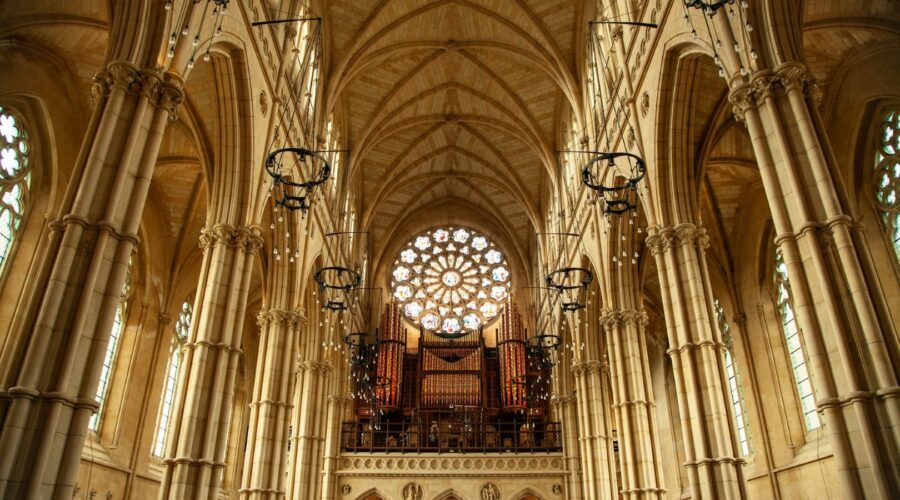
Harvest Bible Chapel: A Comprehensive Guide
Harvest Bible Chapel is a non-denominational, evangelical megachurch with locations in Illinois, California, Colorado, Florida, Maryland, North Carolina, Wisconsin, and Puerto Rico. Founded in 1988 by James MacDonald, the church has grown to over 15,000 members.
Core Beliefs
- The Bible is the inspired, infallible Word of God.
- There is one God who exists in three persons: the Father, the Son, and the Holy Spirit.
- Jesus Christ is the Son of God and the only way to salvation.
- Salvation is by grace through faith in Jesus Christ alone.
- The Holy Spirit indwells all believers and empowers them to live a Christ-like life.
Ministries
Harvest Bible Chapel offers a wide range of ministries for all ages, including:
- Children’s Ministry
- Youth Ministry
- College Ministry
- Women’s Ministry
- Men’s Ministry
- Marriage Ministry
- Missions Ministry
Outreach
Harvest Bible Chapel is committed to reaching out to the community through a variety of outreach programs, including:
- Community Service
- Missions Trips
- Disaster Relief
Controversy
Harvest Bible Chapel has been involved in several controversies over the years, including:
- James MacDonald’s alleged financial mismanagement
- The church’s stance on homosexuality
- The church’s handling of sexual abuse allegations
Conclusion
Harvest Bible Chapel is a large and influential church with a strong commitment to biblical teaching and outreach. However, the church has also been involved in several controversies over the years. Despite these controversies, Harvest Bible Chapel continues to grow and reach new people with the message of the gospel.
Additional Information
Location Address Rolling Meadows, IL 1801 W Algonquin Rd, Rolling Meadows, IL 60008 Elgin, IL 1975 Big Timber Rd, Elgin, IL 60123 Naperville, IL 1313 S Washington St, Naperville, IL 60565 Geneva, IL 215 S Fourth St, Geneva, IL 60134 Schaumburg, IL 1900 E Higgins Rd, Schaumburg, IL 60173 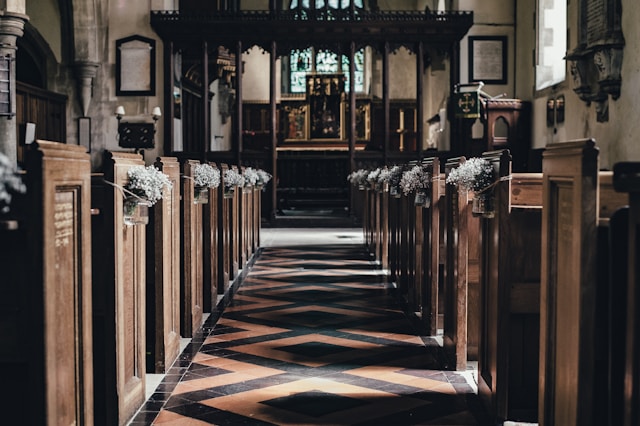
Discover the Evangelical Covenant Church: A Community of Faith
Introduction
The Evangelical Covenant Church (ECC) is a Christian denomination with a rich history and a vibrant present. Founded in 1855 by Swedish immigrants, the ECC has grown into a global movement with over 600,000 members worldwide. This blog post will delve into the key aspects of the Evangelical Covenant Church, exploring its history, beliefs, mission, and structure.
History of the Evangelical Covenant Church
The roots of the ECC can be traced back to a group of Swedish immigrants who arrived in the United States in the mid-1800s. Inspired by a desire to follow God’s calling, they established churches and conferences that emphasized a personal relationship with Jesus Christ, a strong commitment to the Bible, and a passion for outreach and mission.
Early Growth and Development
In 1855, the first Covenant Church was established in New York City. Over the following decades, the movement grew steadily, establishing churches throughout the Midwest and beyond. The ECC became known for its emphasis on evangelism, education, and social justice.
Expansion and Innovation
In the 20th century, the ECC experienced significant growth both domestically and internationally. The church expanded into new geographical regions, established new schools and institutions, and launched innovative ministries to meet the changing needs of society.
Beliefs of the Evangelical Covenant Church
The Evangelical Covenant Church holds to a set of core beliefs that guide its faith and practice. These beliefs are grounded in the Bible and include the following:
* The Trinity: God is one being who exists eternally in three persons: the Father, the Son (Jesus Christ), and the Holy Spirit.
* Jesus Christ: Jesus is the Son of God who became human and died on the cross to redeem us from sin.
* The Holy Spirit: The Holy Spirit is the third person of the Trinity who dwells in believers and empowers them to live godly lives.
* The Bible: The Bible is the inspired and authoritative Word of God.
* Salvation: Salvation is a gift from God that is received through faith in Jesus Christ.Mission and Outreach of the Evangelical Covenant Church
The Evangelical Covenant Church is committed to living out its mission of “making disciples of Jesus Christ in every place.” This mission is carried out through a variety of programs and ministries, including:
Evangelizing
The ECC is committed to spreading the gospel of Jesus Christ to all people. This is done through evangelistic outreach, church planting, and cross-cultural mission work.
Discipling
The ECC believes in discipling believers to grow in their faith and become mature followers of Christ. This is done through Sunday school, small groups, and other discipleship programs.
Serving
The ECC is committed to serving the local community and the world in practical ways. This is done through community outreach programs, disaster relief, and other forms of compassionate care.
Structure of the Evangelical Covenant Church
The Evangelical Covenant Church is a decentralized denomination with a representative form of government. The church is led by a General Assembly, which meets annually to set policy and elect church leaders.
Local Churches
The local church is the primary unit of the Evangelical Covenant Church. Each local church is led by a pastor and a group of elders, who are responsible for the church’s spiritual and administrative oversight.
Conferences
Conferences are regional organizations that provide support and oversight to local churches. The ECC has 16 conferences, each of which is led by a superintendent.
General Assembly
The General Assembly is the highest governing authority of the Evangelical Covenant Church. The General Assembly meets annually to set policy, elect church leaders, and provide guidance to the denomination.
Conclusion
The Evangelical Covenant Church is a diverse and dynamic denomination with a rich history and a vibrant present. Its commitment to evangelism, discipleship, and service has made a significant impact on the lives of countless people around the world. As the ECC continues to grow and adapt to an ever-changing world, its core beliefs and mission remain the same.
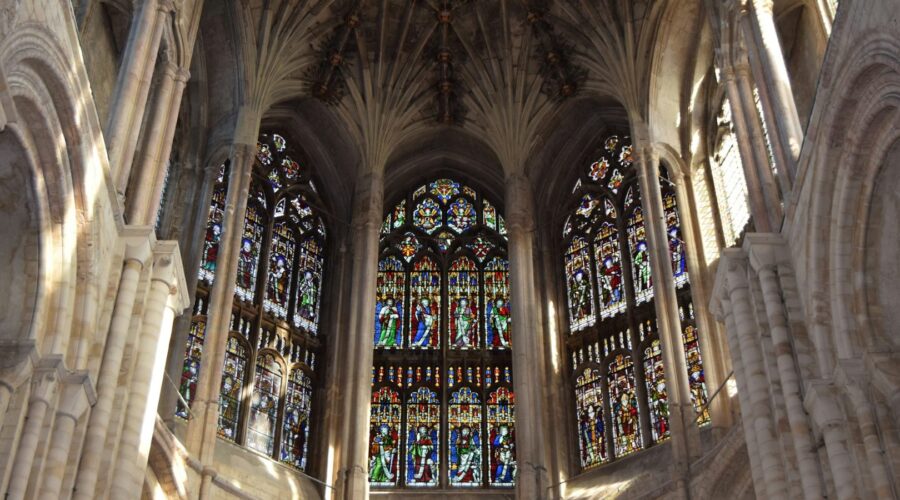
Anglicanism: A Comprehensive Guide to the History, Beliefs, and Practices
Introduction
Anglicanism is a major Christian tradition that originated in England during the English Reformation. It is distinguished by its distinctive blend of Catholic and Protestant elements, and its emphasis on the authority of Scripture and tradition.
History
Origins
Anglicanism emerged during the reign of King Henry VIII (1509-1547), who broke with the Roman Catholic Church in 1534 over the issue of his marriage to Anne Boleyn. In 1536, Parliament passed the Act of Supremacy, which declared the king to be the supreme head of the Church of England.
Development
Under Henry’s successors, the Church of England continued to evolve. In 1549, the Book of Common Prayer was published, which established a common liturgy for all Anglican churches. In the 16th and 17th centuries, Anglicanism spread to other parts of the British Empire, including Ireland, Scotland, and North America.
Beliefs
Anglicanism is characterized by a balance between Catholic and Protestant theology.
Catholic Influences
- Belief in the Real Presence of Christ in the Eucharist
- Episcopal hierarchy
- Liturgical worship
- Tradition as a source of authority
Protestant Influences
- Sola Scriptura (Scripture alone is the ultimate authority)
- Justification by faith alone
- Emphasis on the priesthood of all believers
Practices
Worship
Anglican worship is primarily based on the Book of Common Prayer. It features a blend of traditional and contemporary elements, including hymns, prayers, readings, and sacraments.
Sacraments
Anglicans believe in the two sacraments instituted by Jesus: Baptism and Holy Communion (Eucharist). Baptism is a sign of initiation into the Christian community, while the Eucharist is a remembrance of Christ’s death and resurrection.
Ministry
Anglican ministry is organized into three orders: bishops, priests, and deacons. Bishops are the overseers of dioceses, priests are responsible for the care and pastoral needs of congregations, and deacons assist in both liturgical and practical ministries.
Women in Ministry
Anglicans have been at the forefront of the ordination of women into ministry. In 1992, the Anglican Church of Canada became the first Anglican province to ordain women as priests.
Organization
Anglicanism is a global communion of churches. The Archbishop of Canterbury is the spiritual leader of the Anglican Communion, but each province is autonomous and has its own governing body.
Provinces
There are 41 Anglican provinces around the world, each with its own archbishop. The largest province is the Church of England, with over 80 million members.
Instruments of Communion
The Anglican Communion is governed by three instruments: the Lambeth Conference, the Anglican Consultative Council, and the Primates’ Meeting.
Ecumenical Relations
Anglicanism is active in ecumenical efforts. It is a member of the World Council of Churches and has strong relationships with other Christian denominations, including the Roman Catholic Church and the Eastern Orthodox Church.
Influence
Anglicanism has had a significant influence on Christianity worldwide. Its emphasis on liturgy, tradition, and the priesthood of all believers has shaped the practices of many other Christian denominations.
- Anglicanism is the second largest Protestant tradition in the world, after Lutheranism.
- There are over 85 million Anglicans worldwide.
- Anglican churches are found in over 160 countries.
Conclusion
Anglicanism is a rich and diverse Christian tradition that has played a significant role in the history of Christianity. Its blend of Catholic and Protestant elements, its emphasis on Scripture and tradition, and its global reach make it one of the most important Christian traditions in the world today.
Key Anglican Provinces Province Membership Archbishop Church of England Over 80 million Justin Welby Anglican Church of North America Over 100,000 Foley Beach Anglican Church of Canada Over 500,000 Linda Nicholls Church of Nigeria Over 20 million Henry Ndukuba Anglican Church of Kenya Over 6 million Jackson ole Sapit - Resources on Anglicanism:
Anglican Communion website
Church of England website
Episcopal Church (USA) website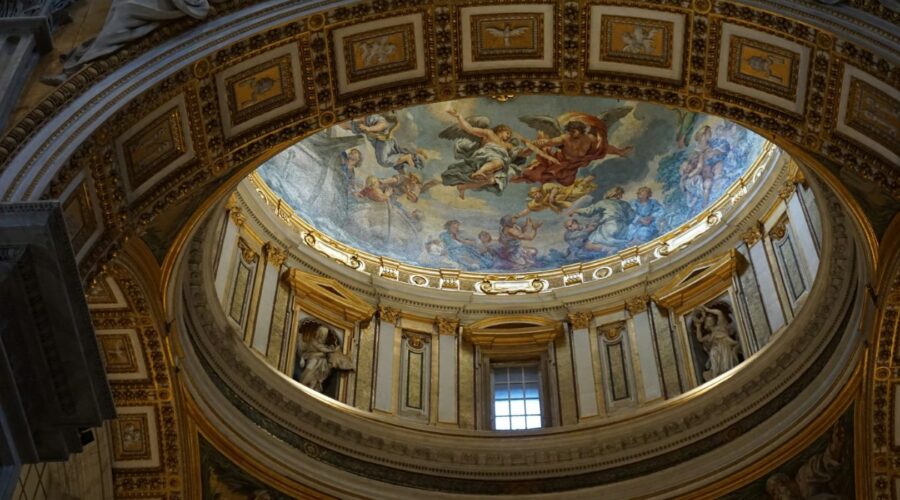
Unveiling the Essence of Central Presbyterian Church: A Comprehensive Guide
Embark on a spiritual journey at the heart of the historic Central Presbyterian Church. This renowned sanctuary has been a beacon of faith and community in the city for over a century. Let’s delve into its rich history, vibrant ministries, and captivating architectural splendor.
Historical Tapestry
1890: Birth of a Congregation
Inspired by a desire for a Presbyterian presence in the city’s burgeoning downtown, a group of faithful pioneers gathered to establish Central Presbyterian Church in 1890.
1906: A Majestic Edifice
Construction of the iconic Central Presbyterian Church sanctuary commenced in 1906. Renowned architect Ralph Adams Cram designed the masterpiece in a blend of Gothic and Romanesque Revival styles.
1966: A National Landmark
Recognizing its architectural and historical significance, Central Presbyterian Church was designated a National Historic Landmark in 1966, joining the ranks of America’s most treasured landmarks.
Diverse Ministries
Worship Services
- Traditional Sunday Services
- Contemporary Sunday Services
- Special Services for Holidays and Occasions
Christian Education
- Sunday School Programs for All Ages
- Bible Study and Discussion Groups
- Confirmation and Youth Groups
Community Outreach
- Soup Kitchen and Food Pantry
- Tutoring and Mentoring Programs
- Partnerships with Local Non-Profits
Architectural Marvel
Exterior Grandeur
The church’s exterior facade captivates with its intricate Gothic arches, soaring bell tower, and stained glass windows depicting biblical scenes.
Sanctuary’s Majestic Interior
Inside, the sanctuary unfolds in all its glory, featuring vaulted ceilings, massive columns, and an awe-inspiring pipe organ.
Historical Artifacts
The church houses a collection of historical artifacts, including ancient Bibles, communion vessels, and original architectural drawings.
Practical Information
Location and Contact
Central Presbyterian Church is conveniently located at 929 I Street, NW, Washington, DC 20001.
Website | Phone: (202) 638-1331
Service Times
- Sunday: 9:30 AM (Traditional), 11:00 AM (Contemporary)
- Weekdays: Consult the church website or call for specific times
Accessibility
The church is wheelchair accessible, with ramps and elevators. Assistive listening devices are also available.
Conclusion
Central Presbyterian Church stands as a testament to the power of faith, community, and architectural artistry. Its historic legacy, vibrant ministries, and captivating sanctuary make it a destination for spiritual seekers, history buffs, and architecture enthusiasts alike. Whether you seek a place for worship, connection, or simply an appreciation of beauty, this landmark church welcomes you with open arms.
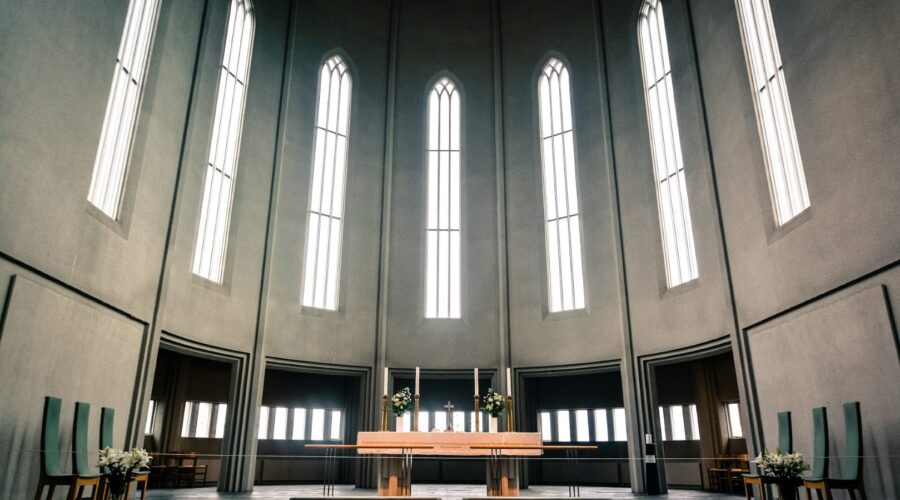
Faith Chapel: A Comprehensive Guide for Pastors and Leaders
Introduction
Faith Chapel is a movement of evangelical churches that emphasizes the importance of personal faith and practical Christian living. Founded in 1964 by Pastor Ray Stedman, Faith Chapel has grown to over 100 churches worldwide. Known for its teaching-focused services and strong emphasis on discipleship, Faith Chapel has become a significant force in evangelical Christianity.
Faith Chapel Beliefs
Core Tenets
- The Bible as the sole authority for faith and practice
- The deity of Christ and His virgin birth
- The necessity of personal faith in Christ for salvation
- The indwelling of the Holy Spirit in every believer
- The importance of practical Christian living
Distinctive Beliefs
- Emphasis on personal faith over adherence to traditions
- Focus on practical application of biblical principles
- Rejection of dispensationalism, believing in the unity of God’s plan throughout history
Faith Chapel Practices
Worship Services
- Emphasis on biblical teaching and exposition
- Contemporary and traditional worship music
- Prayer and communion as central elements
Discipleship and Outreach
- Strong emphasis on mentoring and small group Bible studies
- Opportunities for leadership development and ministry involvement
- Outreach programs to the local community and beyond
Faith Chapel Leadership
Structure and Governance
- Each church is led by a pastor who is accountable to the national leadership team
- Governing board provides oversight and support to the pastor
- Conferences and meetings foster unity and collaboration among churches
Qualifications and Character
- Biblical knowledge and understanding
- Strong preaching and teaching abilities
- Exemplary character and spiritual maturity
Faith Chapel History
- 1964: Founded by Ray Stedman in Palo Alto, California
- 1970s: Rapid growth and establishment of churches across the United States and internationally
- 1990s: Expansion into new ministries and outreach programs
- 2000s: Continuation of growth and emphasis on international missions
Faith Chapel Resources
Online Resources
Books and Publications
- Preparing for the Real World by Ray Stedman
- The Body of Christ by Ray Stedman
- The Power of Prayer by Ray Stedman

Zion Lutheran Church: A Guiding Light for Faith and Community
Zion Lutheran Church: A Historical Perspective
Zion Lutheran Church, located in the heart of Holyoke, Massachusetts, has been a beacon of faith and community for over 150 years. Founded in 1867 by a small group of German immigrants, the congregation quickly grew and became a pillar of the city’s Lutheran community.
The church building, constructed in 1872, is a testament to the architectural skills of the era. The Gothic-style structure, with its towering steeple and intricate stained-glass windows, remains a landmark in the city today.
A Vibrant and Diverse Community
Today, Zion Lutheran Church is home to a diverse congregation of over 200 members. The church offers a wide range of worship services, including traditional and contemporary services, and is actively involved in outreach programs that serve the Holyoke community and beyond.
Programs and Ministries
- Weekly Sunday School for children and youth
- Confirmation classes for teens
- Adult Bible study and discussion groups
- Mission trips and community outreach programs
- Food pantry and soup kitchen
A Commitment to Service
Service and compassion are at the core of Zion Lutheran Church’s mission. The congregation is deeply involved in social justice issues and works closely with local organizations to address the needs of the community.
The church’s food pantry, which serves hundreds of families each month, is a testament to its commitment to helping those in need. Additionally, Zion Lutheran Church actively supports local homeless shelters and soup kitchens.
A Welcoming and Inclusive Community
Zion Lutheran Church welcomes all people, regardless of their background or beliefs. The congregation is committed to creating a safe and inclusive environment where everyone feels valued and respected.
The church offers a variety of programs and events that are open to the entire community, including concerts, lectures, and community gatherings. Zion Lutheran Church believes in the power of diversity and celebrates the different cultures and perspectives that make up the Holyoke community.
Zion Lutheran Church: A Beacon of Hope
For over 150 years, Zion Lutheran Church has been a beacon of hope and guidance for the people of Holyoke. The church’s unwavering commitment to faith, community, and service has made it a vital part of the city’s fabric.
As Zion Lutheran Church looks towards the future, it remains committed to its mission of sharing the love of God with all who enter its doors. The church will continue to be a place of worship, fellowship, and service, where people from all walks of life can find solace, inspiration, and purpose.
Additional Information
Contact Information and Location
Zion Lutheran Church
511 Hampden Street
Holyoke, MA 01040
(413) 534-7259Worship Services
* Sunday Worship: 10:00 AM (Traditional)
* Sunday Worship: 11:30 AM (Contemporary)Upcoming Events
For a full listing of upcoming events, please visit the church’s website: www.zionlutheranchurch.org
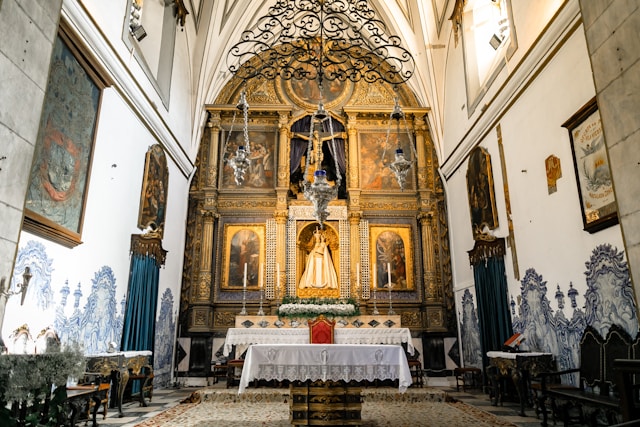
Unveiling the Significance of the “Church on the Hill”
Origin and History
The phrase “church on the hill” originated from Jesus’ Sermon on the Mount (Matthew 5-7). In this sermon, Jesus exhorted his disciples to be “the light of the world” and “a city set on a hill” (Matthew 5:14-15). The metaphor of a church on a hill represents the visible and influential presence of the Christian community within society.
Purpose and Mission
The church on the hill serves several important purposes:
- Witness to the Faith: The church is a physical manifestation of the Christian faith, standing as a beacon of hope and truth in the community.
- Community Gathering Place: The church provides a space for believers to gather, worship, and grow in their faith.
- Social Service: The church often serves as a hub for social service, providing aid to the needy and advocating for justice.
- Missionary Outpost: The church can serve as a base for outreach and evangelism, sending missionaries to spread the Gospel and serve others.
Benefits and Challenges
Being a church on the hill offers both benefits and challenges:
Benefits
- Visibility and Influence: The prominent location of the church enhances its visibility and influence within the community.
- Growth Potential: The church can attract new members more easily due to its accessibility and visibility.
- Community Impact: The church can have a significant impact on the social, cultural, and spiritual fabric of the surrounding area.
Challenges
- Financial Maintenance: Maintaining a church on a hill can be costly due to the size and location of the property.
- Parking and Accessibility: The church may face challenges with parking and accessibility for members and guests.
- Public Perception: The location of the church on a hill may lead to assumptions or expectations that can be difficult to meet.
Recommendations for Church Leaders
For church leaders considering establishing a church on a hill, here are some recommendations:
Considerations Before Building
- Assess the Community Need: Determine if there is a need for a church in the specific location.
- Secure Funding and Resources: Ensure adequate funding and resources are available to support the construction and maintenance of the church.
- Consider Accessibility and Parking: Plan for ample parking and ensure the church is easily accessible to members and guests.
Building and Design
- Maximize Visibility: Design the church to maximize visibility from the surrounding area.
- Create Welcoming Spaces: Design welcoming and inviting spaces for worship, fellowship, and social service.
- Incorporate Sustainable Features: Consider incorporating sustainable features into the design to minimize environmental impact.
Conclusion
The “church on the hill” is a powerful metaphor representing the Christian community’s visible and influential presence within society. Establishing a church on a hill requires careful planning, significant resources, and a commitment to serving both the congregation and the surrounding community. By embracing the benefits and overcoming the challenges, church leaders can create a vibrant and impactful church on the hill that stands as a testament to the transformative power of the Christian faith.
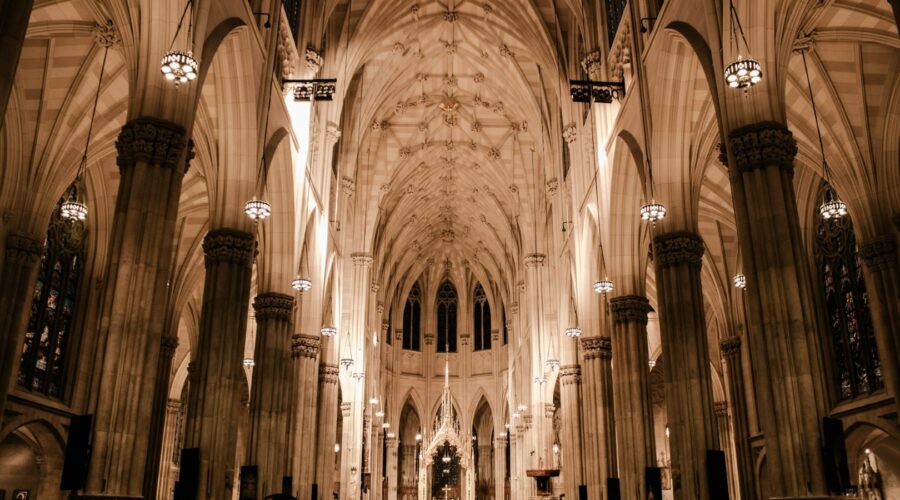
The Gathering Church: A Comprehensive Guide to the History, Beliefs, and Practices
Introduction
The Gathering Church, a contemporary expression of the Christian faith, has emerged as a significant movement that has captured the attention of religious enthusiasts and observers alike. With its emphasis on community, authenticity, and spiritual growth, The Gathering Church has resonated with countless individuals seeking a transformative and meaningful connection with God and one another.
History and Origins
The roots of The Gathering Church can be traced back to the teachings of American pastor Francis Chan, who, after experiencing a profound spiritual awakening in 1994, began to question traditional church models and practices. Together with a group of fellow believers, Chan founded The Gathering Church in 1996 in Simi Valley, California.
Key Beliefs and Values
The Gathering Church adheres to a set of core beliefs that shape its approach to faith and discipleship:
- The Centrality of Scripture: The Bible is considered the infallible and authoritative word of God, providing the foundation for faith and practice.
- The Importance of Community: The Gathering Church emphasizes the vital role of community in the life of a Christian, fostering close relationships and mutual support.
- Authenticity and Transparency: The church encourages its members to be genuine and vulnerable with one another, creating a safe space for spiritual growth.
- Service and Outreach: The Gathering Church places a strong emphasis on serving others, both within the church community and beyond.
- Simplicity and Flexibility: The church emphasizes simplicity in its worship services and organization, seeking to remove any barriers that might hinder individuals from connecting with God.
Practices and Characteristics
The Gathering Church is characterized by several unique practices that reflect its core beliefs:
Small Groups:
The church organizes its members into small groups, where individuals can connect with one another, study the Bible, and support each other’s spiritual growth.
House Churches:
Many Gathering Church locations meet in private homes, providing a more intimate and informal setting for worship and community.
Contemporary Worship:
The Gathering Church typically uses contemporary worship music and a casual format for its services, aiming to make them accessible and engaging.
Focus on Discipleship:
The church places a high priority on discipleship, offering various programs and resources to help members grow in their knowledge of God and their spiritual lives.
Benefits and Criticisms
Benefits:
- Provides a strong sense of community and belonging.
- Encourages authenticity and transparency.
- Offers a flexible and accessible approach to worship and discipleship.
- Focuses on serving the local community and beyond.
Criticisms:
- May lack the structure and formality of traditional church models.
- Small group emphasis can potentially lead to isolation within the larger congregation.
- Contemporary worship style may not appeal to all individuals.
- Focus on personal growth can sometimes overshadow communal aspects of faith.
Conclusion
The Gathering Church represents a distinct and influential expression of Christianity that continues to attract and inspire individuals seeking a vibrant and meaningful faith experience. Its unwavering commitment to community, authenticity, and simplicity has made it a beacon of hope and renewal for many. While not without its critics, The Gathering Church’s unique approach to discipleship and its emphasis on serving others have undeniable appeal. As it continues to evolve and expand, it will undoubtedly remain a significant force shaping the future of the Christian faith.
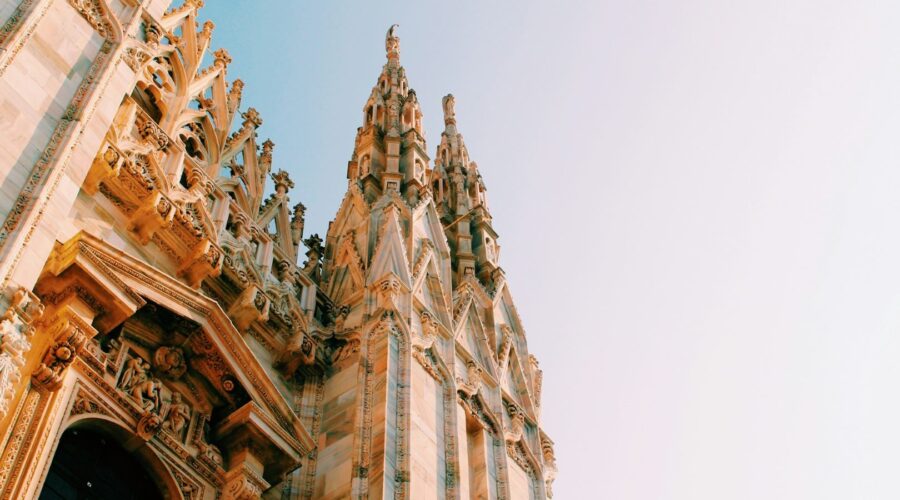
Holy Rosary Friday: A Guide to the History, Significance, and Benefits
Introduction
Holy Rosary Friday, also known as Our Lady of the Rosary Friday, is a special day of devotional prayer and remembrance in the Catholic Church. It is celebrated on the first Friday of October and is dedicated to the Blessed Virgin Mary and the Holy Rosary.
History and Origins
The origins of Holy Rosary Friday can be traced back to the 16th century. In 1571, Pope Pius V established the Feast of Our Lady of Victory to commemorate the victory of the Catholic forces at the Battle of Lepanto. This victory was attributed to the intercession of the Blessed Virgin Mary, who was invoked through the recitation of the Holy Rosary.
In the centuries that followed, the Feast of Our Lady of Victory evolved into Holy Rosary Friday. The first Friday of October was chosen for this celebration because it is the month dedicated to the Holy Rosary and the Feast of Our Lady of the Rosary (October 7).
Significance
Holy Rosary Friday is a day of deep spiritual significance for Catholics. It is an occasion to:
- Honor and venerate the Blessed Virgin Mary
- Pray for the intercession of Mary in times of need
- Express gratitude for her protection and guidance
- Gain spiritual graces and indulgences
- Promote the devotion of the Holy Rosary
Benefits
Reciting the Holy Rosary on Holy Rosary Friday is believed to bring numerous spiritual benefits, including:
- Protection from evil and temptation
- Increased faith and devotion to God
- Spiritual growth and conversion of sinners
- Peace and tranquility of mind and heart
- Intercession of Mary for our needs and prayers
Customs and Traditions
Holy Rosary Friday is observed by Catholics around the world through various customs and traditions:
Prayer
The primary focus of Holy Rosary Friday is the recitation of the Holy Rosary. Catholics are encouraged to pray the entire Rosary, consisting of 20 decades, or at least one or two decades.
Mass
Many Catholic churches hold special Masses on Holy Rosary Friday. These Masses often include readings, prayers, and hymns that honor the Blessed Virgin Mary and promote the devotion of the Rosary.
Processions
In some cultures, it is customary to hold processions with a statue of the Blessed Virgin Mary on Holy Rosary Friday. The procession may involve prayers, songs, and the recitation of the Rosary.
Indulgences
The Church grants special indulgences to those who participate in the devotional practices of Holy Rosary Friday. These indulgences can help to reduce the temporal punishment due to sin.
Prayer Groups and Community Gatherings
Catholic prayer groups and communities often organize special gatherings on Holy Rosary Friday. These gatherings provide an opportunity for prayer, fellowship, and the sharing of the Rosary.
How to Celebrate Holy Rosary Friday
Here are some tips on how to celebrate Holy Rosary Friday:
- Resolve to pray the Holy Rosary on Holy Rosary Friday or attend Mass if possible.
- Find a quiet place or join a group to pray the Rosary.
- Meditate on the mysteries of the Rosary and the words of the Hail Mary.
- Offer your prayers for the intercession of Mary and the needs of the world.
- Receive the Sacrament of Confession and Holy Communion if possible.
- Consider donating to a Catholic charity or supporting a cause related to the Rosary or the Blessed Virgin Mary.
Conclusion
Holy Rosary Friday is a special day in the Catholic Church dedicated to the Blessed Virgin Mary and the Holy Rosary. It is a time to honor and venerate Mary, seek her intercession, and gain spiritual graces. By participating in the devotional practices of Holy Rosary Friday, Catholics can deepen their faith, grow in holiness, and experience the protection and guidance of the Mother of God.
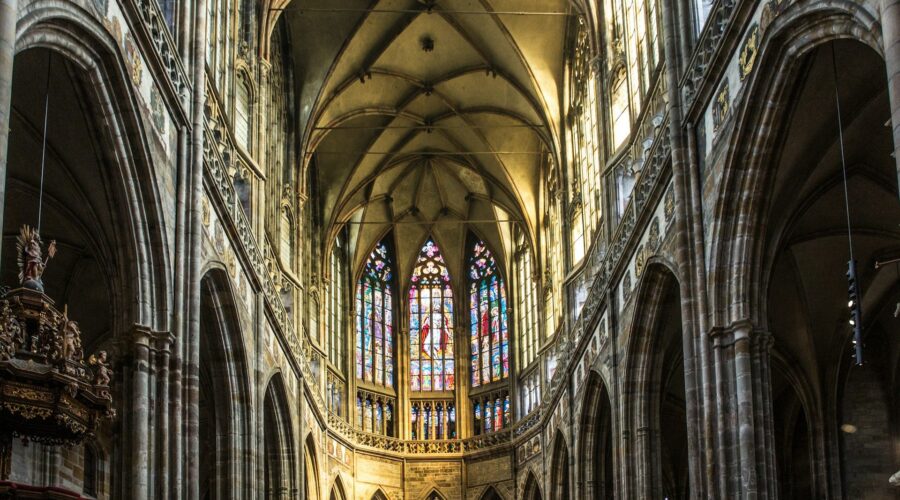
Unveiling the Orchard Church: A Comprehensive Guide to Its Beliefs, Practices, and Impact
Introduction
Orchard Church is a non-denominational, evangelical Christian megachurch with a global reach. Known for its contemporary worship style, innovative outreach programs, and emphasis on community, Orchard Church has become a beacon of faith and a catalyst for social change in the 21st century.
Core Beliefs
- The Triune Nature of God: Father, Son, and Holy Spirit
- The Authority of Scripture: The Bible as God’s inspired Word
- The Deity and Humanity of Jesus Christ: The Savior and Lord
- The Transformative Power of the Holy Spirit: Empowering believers for life and ministry
- The Priesthood of All Believers: Every Christian has direct access to God
li>The Need for Salvation: Through faith in Christ’s sacrificial death
Distinctive Practices
Contemporary Worship
Orchard Church is renowned for its vibrant and engaging worship services. It incorporates a blend of traditional hymns, contemporary songs, and multimedia presentations to create an atmosphere of praise and adoration.
Small Group Discipleship
Orchard emphasizes the importance of spiritual growth through small groups. These groups provide a space for congregants to connect, share, and study the Scriptures together.
Innovative Outreach
Orchard Church is actively involved in community outreach programs. It runs ministries that serve the homeless, provide affordable housing, and offer educational and social support services.
Global Impact
Orchard has a global network of partner churches and ministries. It supports missionaries, provides disaster relief, and engages in cross-cultural evangelism.
Church Structure and Leadership
Orchard Church is structured under a board of elders who are responsible for the church’s governance and spiritual oversight. The lead pastor serves as the primary spokesperson and provides guidance to the church.
Orchard also has a large staff of pastors, leaders, and volunteers who support the church’s various ministries and programs.
Locations and Membership
Orchard Church has multiple campuses located throughout the United States. It also has affiliated churches and ministries in other countries.
The church does not release specific membership numbers, but it is estimated to have tens of thousands of regular attendees globally.
Criticism and Controversies
Like any large organization, Orchard Church has faced its share of criticism and controversies. Some have questioned its focus on music and entertainment, while others have raised concerns about its handling of financial matters.
However, Orchard Church has consistently addressed these criticisms and strived to maintain transparency and accountability.
Conclusion
Orchard Church represents a dynamic and transformative force in contemporary Christianity. Through its innovative practices, outreach initiatives, and global impact, it continues to inspire and empower believers worldwide. By embracing a vibrant faith, emphasizing community, and engaging in social activism, Orchard Church exemplifies the transformative power of the Gospel in the 21st century.
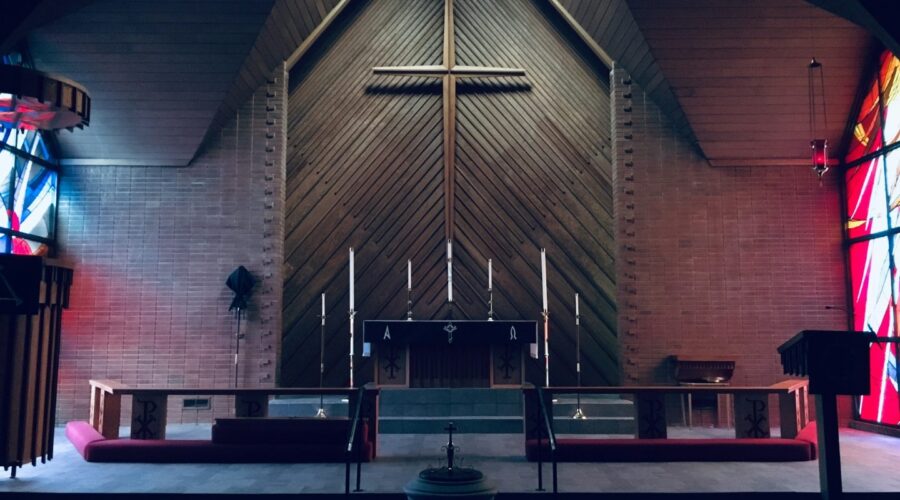
Discover the Church of God of Prophecy: Its History, Beliefs, and Impact
Introduction
The Church of God of Prophecy is a Pentecostal denomination with a rich history and global presence. Founded on the principles of holiness, divine healing, and the imminent return of Christ, the church has grown to encompass millions of members worldwide. In this comprehensive guide, we’ll delve into the key aspects of the Church of God of Prophecy, exploring its history, beliefs, practices, and impact on the Christian landscape.
Historical Foundations
A.A. Allen and the Early Days
The Church of God of Prophecy was founded in 1903 by A.J. Tomlinson, a Holiness preacher from Tennessee. Tomlinson and his followers believed that the end times were approaching, and they emphasized the need for a pure and holy church. In 1923, A.A. Allen, a charismatic preacher from Texas, joined the church and became a key figure in its growth and expansion.
Spread to the United States
Under Allen’s leadership, the church expanded rapidly in the United States. Allen’s fiery sermons and miraculous healing services attracted large crowds, and the church established numerous congregations throughout the country. By the mid-20th century, the Church of God of Prophecy had become one of the largest Pentecostal denominations in the United States.
Core Beliefs
- Holiness: The Church of God of Prophecy emphasizes the importance of personal holiness and living a life free from sin.
- Divine Healing: The church believes in the power of divine healing and encourages its members to seek healing through faith and prayer.
- Imminent Return of Christ: The church holds that Christ will return soon and that it is important to be prepared for his second coming.
- Missionary Work: The Church of God of Prophecy has a strong missionary outreach program, with missionaries working in over 140 countries around the world.
- Spirit-Filled Church: The church believes that the Holy Spirit is active in the lives of believers and that it is essential for spiritual growth.
Practices and Worship
Worship Services
Worship services in the Church of God of Prophecy are characterized by lively music, enthusiastic preaching, and emotional expressions of faith. Services typically include singing, praying, and sharing testimonies. Worshipers often raise their hands, dance, or speak in tongues during worship.
Baptism and the Holy Spirit
The Church of God of Prophecy practices water baptism by immersion for new believers. Baptism is considered a symbol of cleansing from sin and entering into a new life with Christ. The church also believes in the baptism of the Holy Spirit, which is an empowering experience that enables believers to live out their faith with greater boldness and power.
Organizational Structure
The Church of God of Prophecy is organized into a hierarchical structure. The highest authority is the International General Assembly, which meets every four years to set policies and elect leaders. The church is divided into regions, districts, and local congregations. Each local congregation is led by a pastor, who is responsible for the spiritual and administrative oversight of the congregation.
Global Impact
The Church of God of Prophecy has had a significant impact on the Christian landscape worldwide. Through its missionary outreach, the church has played a vital role in spreading the gospel and establishing new congregations in numerous countries. The church’s emphasis on holiness, divine healing, and the imminent return of Christ has influenced the beliefs and practices of many other Pentecostal denominations.
Conclusion
The Church of God of Prophecy is a vibrant and growing Pentecostal denomination with a rich history and a global reach. Its core beliefs in holiness, divine healing, and the imminent return of Christ have shaped the lives of millions of believers. Through its worship services, missionary outreach, and organizational structure, the church continues to be a significant force in the Christian world.